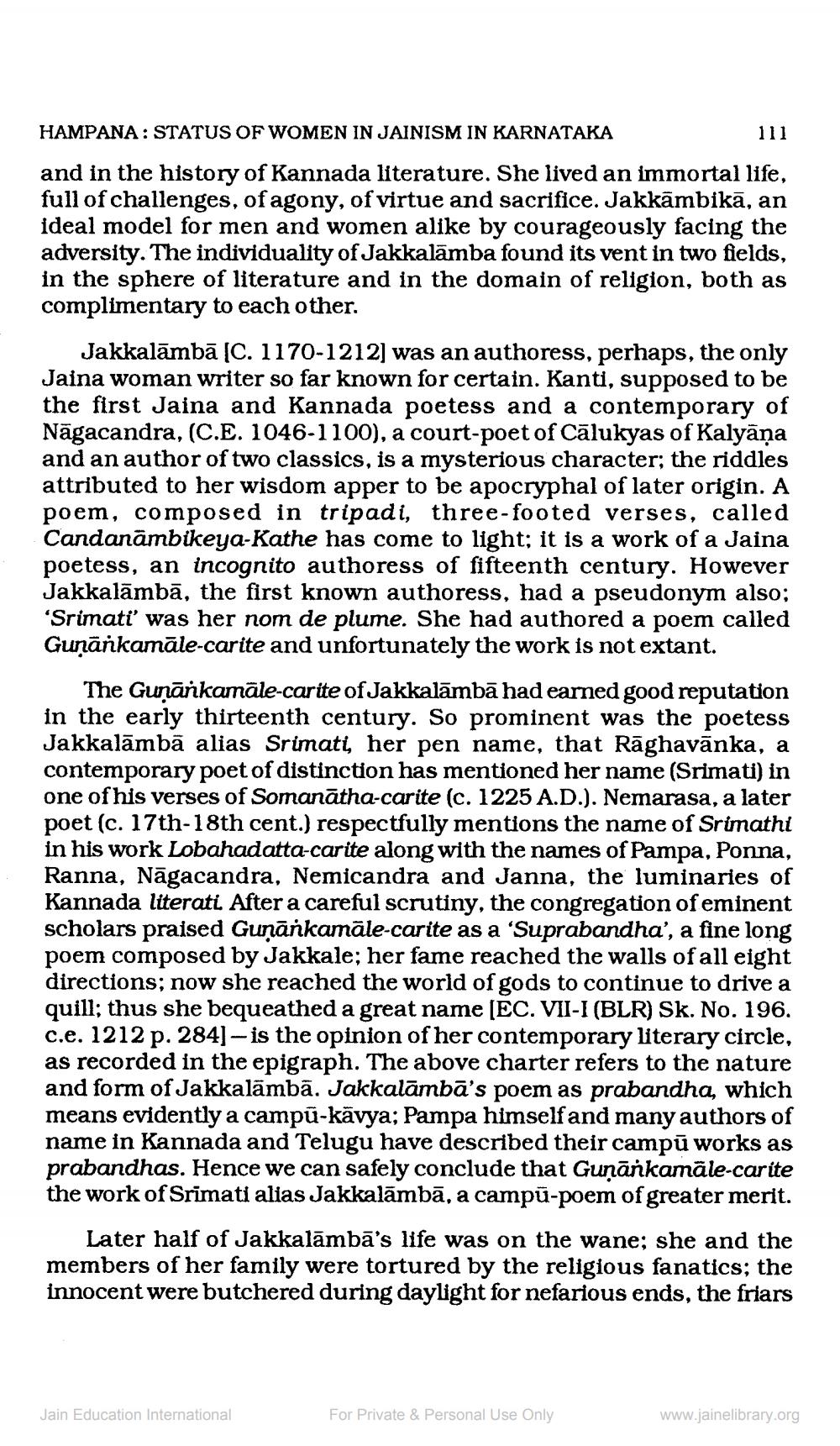________________
HAMPANA: STATUS OF WOMEN IN JAINISM IN KARNATAKA
and in the history of Kannada literature. She lived an immortal life, full of challenges, of agony, of virtue and sacrifice. Jakkāmbikā, an ideal model for men and women alike by courageously facing the adversity. The individuality of Jakkalāmba found its vent in two fields, in the sphere of literature and in the domain of religion, both as complimentary to each other.
Jakkalāmbā [C. 1170-1212] was an authoress, perhaps, the only Jaina woman writer so far known for certain. Kanti, supposed to be the first Jaina and Kannada poetess and a contemporary of Nāgacandra, (C.E. 1046-1100), a court-poet of Calukyas of Kalyāṇa and an author of two classics, is a mysterious character; the riddles attributed to her wisdom apper to be apocryphal of later origin. A poem, composed in tripadi, three-footed verses, called Candanambikeya-Kathe has come to light; it is a work of a Jaina poetess, an incognito authoress of fifteenth century. However Jakkalāmbā, the first known authoress, had a pseudonym also; 'Srimati' was her nom de plume. She had authored a poem called Guṇānkamāle-carite and unfortunately the work is not extant.
111
The Gunankamale-carite of Jakkalāmbā had earned good reputation in the early thirteenth century. So prominent was the poetess Jakkalāmbā alias Srimati, her pen name, that Raghavānka, a contemporary poet of distinction has mentioned her name (Srimati) in one of his verses of Somanatha-carite (c. 1225 A.D.). Nemarasa, a later poet (c. 17th-18th cent.) respectfully mentions the name of Srimathi in his work Lobahadatta-carite along with the names of Pampa, Ponna, Ranna, Nāgacandra, Nemicandra and Janna, the luminaries of Kannada literati. After a careful scrutiny, the congregation of eminent scholars praised Guṇānkamāle-carite as a 'Suprabandha', a fine long poem composed by Jakkale; her fame reached the walls of all eight directions; now she reached the world of gods to continue to drive a quill; thus she bequeathed a great name [EC. VII-I (BLR) Sk. No. 196. c.e. 1212 p. 284]-is the opinion of her contemporary literary circle, as recorded in the epigraph. The above charter refers to the nature and form of Jakkalamba. Jakkalāmbā's poem as prabandha, which means evidently a campu-kävya; Pampa himself and many authors of name in Kannada and Telugu have described their campu works as prabandhas. Hence we can safely conclude that Gunankamale-carite the work of Srimati alias Jakkalāmbā, a campü-poem of greater merit.
Later half of Jakkalamba's life was on the wane; she and the members of her family were tortured by the religious fanatics; the innocent were butchered during daylight for nefarious ends, the friars
Jain Education International
For Private & Personal Use Only
www.jainelibrary.org




